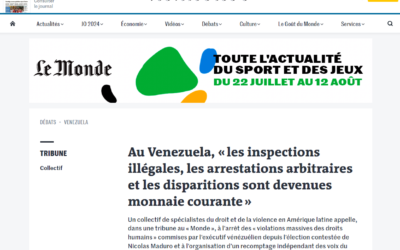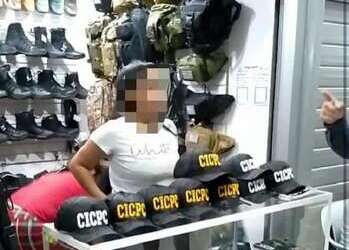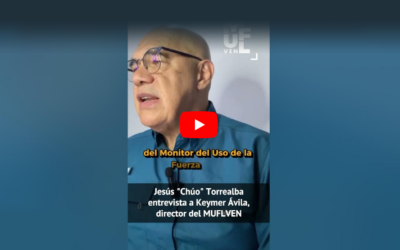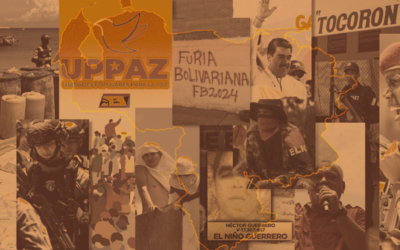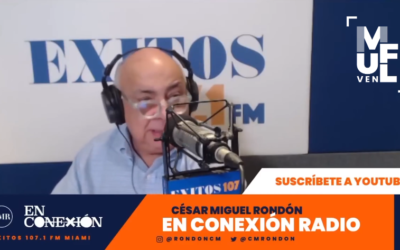October 4, 2017
Keymer Ávila | @Keymer_Avila
Despite the negative results and its high social costs, the heavy hand is resorted to repeatedly to confront crime and insecurity. Why insist on these proven ineffective formulas?
This is the question on which Andrés Antillano and whoever writes these lines have been reflecting on in recent years and serves as the title of an article recently published in the CIDOB d’Afers Internacionals Magazine, the latest issue of which is dedicated to the reduction of homicides . and armed violence in Latin America .
The article does not intend to deal with what works to reduce homicides, its objective is the opposite, it focuses on what does not work. As it is stated there “it is a «political» bet: make research a denunciation tool and, scientific knowledge, an instance that challenges power and an unjust order. It would be, if you will, an emergency investigation .”
The term “iron hand” is presented as a “diffuse spectrum of laws, policies, state practices and discourses that coincide in attributing moral causes to crime and define offenders as enemies deserving of harsh and implacable treatment, while reinforcing, expanding and intensify punitive responses and institutional violence as a solution.” Within this broad spectrum, emphasis is placed on police violence that operates under military logic. During the last years in Venezuela, policies have been tested that imply an increase in police violence under the pretext of reducing criminal violence; however, far from the expected effects of reducing violence and homicides, these have increased significantly .
Despite the negative results and its high social costs, the heavy hand is resorted to repeatedly to confront crime and insecurity. Why insist on these proven ineffective formulas? This usually occurs in fragmented societies, where fear of crime and the magical offer of a solution through severe and exceptional measures would seem to be the last source of consensus. This is exacerbated when there are low degrees of institutionalization and a strong authoritarian imprint . In the Venezuelan case, the most recent example is the OLP .
But, as has been explained on other occasions , ironclad policies have multiple undeclared functionalities. On the one hand, they control, contain, withdraw or neutralize “the surplus population that remains outside the formal economy and redistributive policies”. In Venezuela, at least “since the eighties of the last century, a recurring cycle seems to be repeated in which the reduction of oil income and, consequently, of the redistributive capacity of the State, is followed by an increase in repression and the criminalization of the popular sectors. The drop in oil revenues in recent years and the exhaustion of the rentier model would explain the renewed vigor of these policies, which were severely questioned at first.”
Finally, it is reiterated that “iron hand policies would be profitable for the different institutional actors that thrive on it. Police officers, military officers, operational commanders or those responsible for security policies find political advantages in the rhetoric of the war against crime and in strong-arm policies and, on occasions, economic incentives. Likewise, these policies offer the opportunity to have greater power, greater budget and resources, greater visibility; at the same time, as has been suggested here, they allow forms of rent extraction that make them a lucrative activity”.
Although starting from the Venezuelan context, the analysis could also be transferred to other countries in the region, such as Mexico, Colombia, Brazil, Honduras, El Salvador or Guatemala.
Publicado originalmente en Provea.
